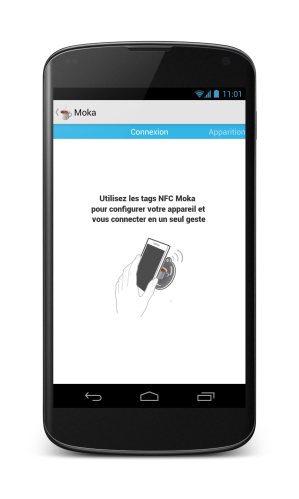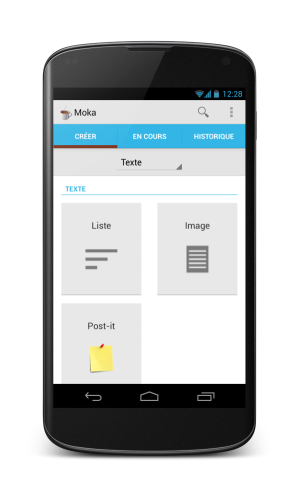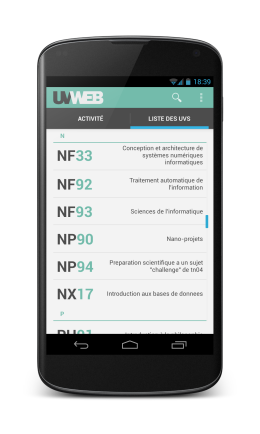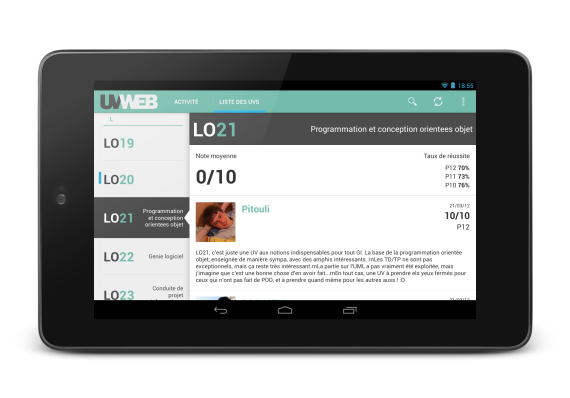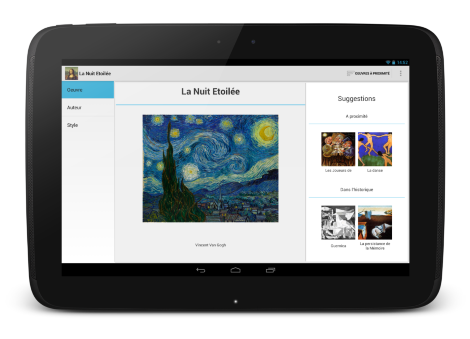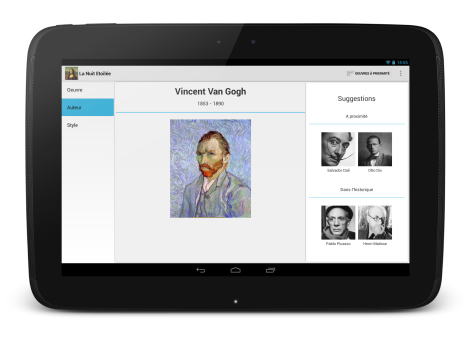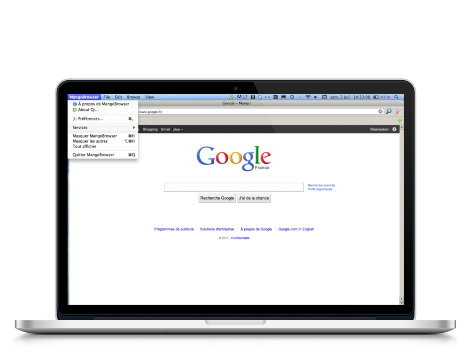Projects
Please note that some of the projects I've been working on can be found on my GitHub page: github.com/tkeunebr.
Moka
Moka is based on the idea that we can make brainstorming meetings more reliable and efficient, with no additional hardware required.
Basically, a smartphone application acts like a remote control for the main screen that's usually connected to a projector. Using the remote, the attendants of the meeting that are connected to the main server (either through NFC or manually) are able to add, edit and remove several types of objects such as images, videos, web pages, UML diagrams, post-its, etc. The objects that are added to the platform can be moved, resized or rotated and their content can be edited, all of these operations happening seamlessly in real-time on both the main screen and the other attendants' application (aka remote control).
Moka features several components:
- An Android application to revolutionize in-room collaboration.
- A JavaScript-based output platform for beautiful realtime rendering.
- A powerful Java/Jade-based back-end server for the heavy computation and across devices synchronization.
- A public REST-based API for third-party developers to be able to interact and make requests with the back-end server.
You can grab further information (including a demo) on the website http://themokaproject.github.io/.
UVweb
UVweb is a website that helps UTC's students choose their classes each semester. It allows them to grade and give comments about classes, teachers and to describe their own curriculum.
On top of that, we provide each semester the success rate for each class. This is one of the core features that make UVweb this tiny but famous social network here at the UTC.
As we were just admins of the UVweb (meaning basically maintenance, stats update, comments moderation and some small design enhancements), Alexandre Masciulli and I were already thinking about doing something bigger with the platform.
We finally found the time to rebuild UVweb from scratch, making its database more flexible, changing the underlying core framework, improving it's UI and UX, providing powerful webservices and an Android application running on top. All of this should be coming within a few months.
You can follow UVweb 2.0 development on Github:
Museum
Museum is an Android app that helps you visit museums and cultural sighs by providing interesting content based on your position, on your profile, on your history and on your cultural background.
Its UI is tablet-optimized and respects Google's guidelines regarding both user interface and experience.
It was developed within the CALM Project (ContextuAlized Learning through Mobility), which is aimed at using innovative technologies in order to improve museums attractiveness and modernize access to culture. By the end of the project, discussions were ongoing with Le Louvre to implement such a project in the museum.
Reverse Polnish notation Calculator
Calculator is a Desktop application written in C++ that can deal with various types of numbers: integer, real, rational, complex and even literal expressions.
It is based on the Reverse Polnish Notation and has some nice features such as a whole Undo/Redo system. It is also a cross-platform app thanks to the Qt framework.
This project was a way for us students to learn how to design a fairly complex object-oriented program with a clean architecture, and to implement this design using a famous framework based on C++. It was the final task of the Introduction to objet-oriented programming and design class.
How was last night
How was last night is an expert system written in Lisp that basically helps you decide whether you had a great time during an event or party or not. The result is based on a combination of the user's answers to a certain number of questions.
The system uses an inference engine, itself relying on a process called forward-chaining. Basically, the engine collects data and uses a set of rules to extract more data, until it is able to make a final conclusion.
Although the subject seems quite fun, the implementation was not easy and we spent a fair amount of time on this. How was last night was developed as the final project of an Artifical intelligence class.
Mango Web Browser
Mango is a web-browser built on top of the famous web engine WebKit, which is used in world-class browsers such as Google Chrome (well, not anymore) and Safari.
I built it as I was studying in Germany, and it was my first big project to achieve. The UI was designed with Qt (and thus uses C++), which allowed me to make it run on several platforms very easily.
Mango has the basic features you would expect from a browser: tab management, find in page, basic download manager as well as a few other stuff. I also created a website that's a bit more comprehensive about Mango.
